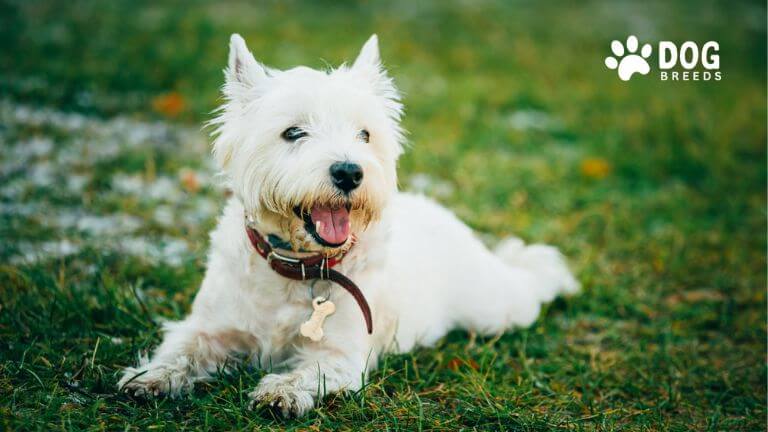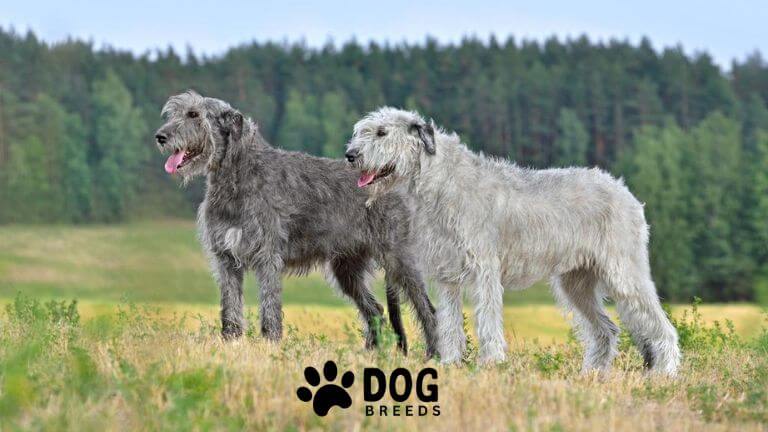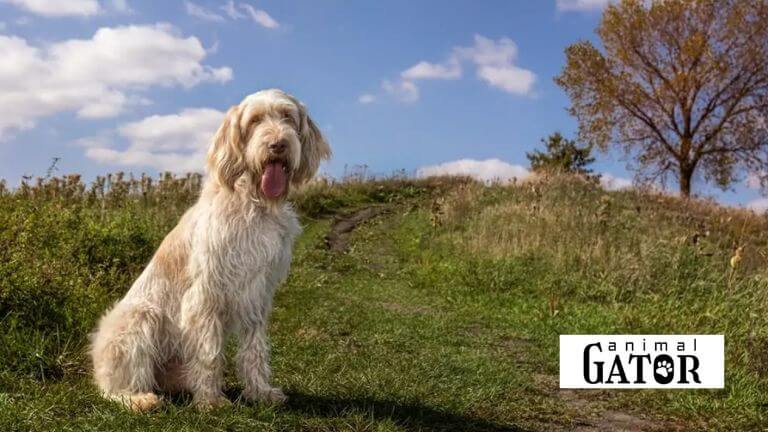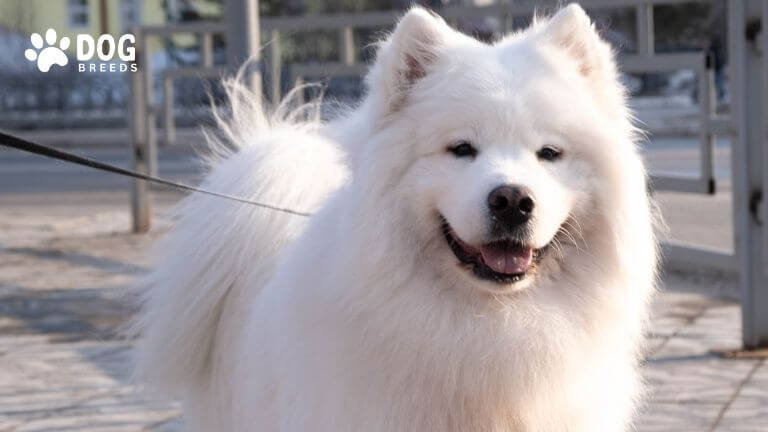West Highland White Terrier Dog Breed: Traits & Care Guide
The West Highland White Terrier, affectionately known as the “Westie,” is a small but spirited dog breed originating from Scotland. Known for its striking white coat, the breed was developed for hunting small animals like rodents and foxes. Today, Westies are beloved companion animals due to their friendly and outgoing personalities. These sturdy terriers are highly popular among families for their adaptability and charming demeanor.
West Highland White Terrier Dog Breed

| Breed Name | West Highland White Terrier (Westie) |
| Origin | Scotland |
| Group | Terrier Group (AKC) |
| Size | Small |
| Height | 10-11 inches (males), 9-10 inches (females) |
| Weight | 15-20 pounds |
| Lifespan | 13-15 years |
| Coat Type | Double coat: a soft undercoat with a wiry outer coat |
| Coat Color | White |
| Temperament | Friendly, outgoing, alert, intelligent, and independent |
| Energy Level | High; requires regular exercise |
| Good with Children | Yes, generally good with children, but supervision is recommended with young kids |
| Good with Other Pets | Can be territorial but often gets along with other pets when properly socialized |
| Exercise Needs | Moderate; daily walks and playtime are essential |
| Training Ease | Intelligent and trainable, though can be stubborn; positive reinforcement works best |
| Grooming Requirements | Regular brushing to prevent matting, occasional trimming, and attention to ears and nails |
| Health Concerns | Potential issues include skin allergies, patellar luxation, and hip dysplasia. Regular vet checkups and preventative care are recommended. |
| Best For | Active individuals or families, those living in houses or apartments with regular outdoor activities |
| Not Ideal For | Owners seeking a low-energy or low-maintenance pet |
Physical Appearance
West Highland White Terriers are small but robust dogs, standing between 10 to 11 inches at the shoulder and weighing around 15 to 20 pounds. They have a distinctive double-layered white coat, which consists of a coarse, straight outer layer and a softer undercoat. This bright white fur helps them stand out during outdoor activities, especially when hunting. Westies have dark, almond-shaped eyes, small, pointed ears, and a distinctive black nose that contrasts with their white fur. Their compact size and perky appearance make them easily recognizable.
Temperament and Personality
West Highland White Terriers are known for their lively, affectionate, and confident nature. Despite their small size, they possess a bold personality and love being active. Westies are social dogs, typically getting along well with children and other pets when properly socialized. They are curious by nature and have a strong prey drive due to their hunting background. This breed is also known for its independence and stubbornness, which can sometimes present challenges in training. However, their loyalty and fun-loving disposition make them great companions for both individuals and families.
Health and Care Requirements
West Highland White Terriers are generally healthy dogs, but like all breeds, they can be prone to certain health issues. Common concerns include skin allergies, hip dysplasia, and patellar luxation. Due to their dense coat, they require regular grooming to prevent matting and to keep their skin healthy. Regular brushing and occasional trimming will keep their coat in good condition. It’s also essential to clean their ears and brush their teeth to prevent infections.
In terms of exercise, Westies are energetic and enjoy daily walks and playtime. They also benefit from mental stimulation in the form of games and training exercises to prevent boredom. Monitoring their diet and weight is important, as obesity can exacerbate joint problems and other health concerns.
Training and Socialization
West Highland White Terriers are intelligent but can sometimes be stubborn, making early training and consistent reinforcement important. Positive reinforcement methods work best, as Westies respond well to praise and rewards. Due to their high prey drive, they might show interest in chasing small animals, so leash training is essential. Socializing a Westie from a young age will help them interact well with other pets and people, ensuring they grow into well-mannered adults.
Crate training can also be useful, providing them with a safe space and assisting in housebreaking. Westies are generally eager to please, but patience and persistence are key when training them.
Dietary Needs
A balanced diet is crucial for maintaining a West Highland White Terrier’s health. High-quality dog food, either commercial or homemade (under a vet’s supervision), should provide the necessary nutrients. Westies have a moderate activity level, so their diet should be adjusted according to their exercise routine and age. It’s important to avoid overfeeding, as obesity can lead to joint and health problems. Fresh water should always be available, and treats should be given sparingly to prevent excess weight gain.
Suitability as a Pet
Westies are adaptable and do well in both apartments and houses with yards, provided they receive enough exercise. They are well-suited for individuals, families, and even seniors looking for an active companion. While they are independent, they also enjoy human company and do best with owners who can spend time with them. Because of their strong-willed nature, Westies may not be the best choice for first-time dog owners without the patience for training. However, for those who can meet their needs, Westies are loyal, fun, and affectionate pets.
FAQs
Are West Highland White Terriers hypoallergenic?
Yes, Westies are considered hypoallergenic because they shed less than other breeds. However, regular grooming is still necessary to maintain their coat.
How often should a Westie be groomed?
Westies should be brushed multiple times a week to prevent their fur from matting. They should also be trimmed every few months, particularly around their face and paws.
Do Westies get along with other pets?
With proper socialization, Westies can coexist well with other dogs and pets, although they might show interest in chasing smaller animals due to their hunting instincts.
What are the common health issues in Westies?
Westies can be prone to skin allergies, hip dysplasia, and patellar luxation. Regular vet check-ups and a healthy diet can help manage these conditions.
How much exercise does a Westie need?
Westies need at least 30 minutes to an hour of exercise daily, including walks and playtime. Mental stimulation is also important to keep them engaged.
By understanding the needs and characteristics of the West Highland White Terrier, prospective owners can ensure they provide the best care for this spirited and loving breed. This guide offers comprehensive insights into their personality, care requirements, and suitability as a companion animal.
- Why Are Dalmatians Not Popular? Uncovering the Truth Behind the Rarity of This Iconic Breed - April 16, 2025
- Top 15 Chinese Dog Breeds: Discover the Best Dogs from China - April 14, 2025
- Dalmatian Dog Breed: History, Care, Personality & Health - April 3, 2025







